What should I look for when buying solar security lights
When it comes to enhancing the safety and security of your property, solar security lights have become an increasingly popular choice. These innovative lighting solutions harness the power of the sun to illuminate your outdoor spaces, deterring potential intruders and providing peace of mind. Among the various options available, solar spot lights stand out as a versatile and effective choice for many homeowners. In this comprehensive guide, we’ll discuss the key factors to consider when purchasing solar security lights, with a focus on solar spot lights and their unique benefits.
Illumination Power and Coverage Area
One of the most crucial aspects to consider when selecting solar security lights is their illumination power and coverage area. The effectiveness of your security lighting system largely depends on its ability to cast a bright, wide beam of light across your property. Solar spot lights, in particular, are designed to provide focused, intense illumination in specific areas.
When evaluating solar spot lights, pay close attention to their lumen output. Lumens measure the total amount of visible light emitted by a source, and a higher lumen count typically indicates a brighter light. For effective security lighting, look for solar spot lights that offer at least 200-400 lumens per fixture. Some high-performance models can even reach up to 1,000 lumens or more, providing exceptionally bright illumination.

In addition to brightness, consider the beam angle of the solar spot lights. A narrower beam angle will concentrate the light into a more focused area, while a wider angle will disperse the light over a larger space. Depending on your specific needs, you may opt for a combination of narrow and wide-angle solar spot lights to achieve optimal coverage of your property.
It’s also worth noting that some advanced solar spot lights come with adjustable brightness settings or dimming capabilities. This feature allows you to customize the light output based on your preferences or specific security requirements, adding an extra layer of versatility to your lighting system.
Battery Capacity and Solar Panel Efficiency
The performance and reliability of solar security lights heavily depend on their battery capacity and the efficiency of their solar panels. These two components work in tandem to ensure your lights function consistently, even during periods of limited sunlight.
When assessing battery capacity, look for solar spot lights with high-capacity lithium-ion batteries. These batteries are known for their longevity and ability to hold a charge effectively. A larger battery capacity translates to longer operating times, ensuring your security lights remain functional throughout the night.
The efficiency of the solar panel is equally important. High-quality solar panels can convert a greater percentage of sunlight into usable energy, allowing the batteries to charge more quickly and effectively. Look for solar spot lights that feature monocrystalline or polycrystalline silicon solar panels, as these tend to offer superior efficiency compared to amorphous silicon panels.
Consider the charging time required for the solar spot lights to reach full capacity. Efficient models should be able to fully charge within a single day of sunlight exposure. Some advanced solar spot lights even incorporate fast-charging technology, allowing them to accumulate a significant charge in just a few hours of direct sunlight.
Durability and Weather Resistance
Since solar security lights are designed for outdoor use, their durability and ability to withstand various weather conditions are paramount. When selecting solar spot lights, pay close attention to their construction materials and weather-resistant features.
Look for solar spot lights made from high-quality, weather-resistant materials such as ABS plastic, aluminum, or stainless steel. These materials offer excellent durability and can withstand exposure to sun, rain, and other environmental factors without deteriorating or losing their functionality.
Water resistance is a crucial factor to consider. Check the IP (Ingress Protection) rating of the solar spot lights you’re considering. An IP65 rating or higher indicates that the lights are dust-tight and protected against water jets from any direction. For areas prone to heavy rainfall or flooding, you may want to opt for lights with an even higher IP rating, such as IP67 or IP68, which offer protection against temporary immersion in water.
In addition to water resistance, consider the temperature range in which the solar spot lights can operate effectively. Quality models should be able to function in a wide range of temperatures, typically from -4°F to 140°F (-20°C to 60°C) or broader. This ensures that your security lights will remain operational throughout the year, regardless of seasonal temperature fluctuations.
UV resistance is another important aspect to consider, especially for the solar panels and plastic components of the lights. Look for solar spot lights that feature UV-resistant coatings or materials to prevent discoloration, cracking, or degradation due to prolonged sun exposure.
Some solar spot lights also come with additional protective features, such as impact-resistant lenses or shatterproof designs. These can be particularly beneficial if you live in an area prone to severe weather events or if you’re concerned about potential vandalism.
When evaluating the durability of solar spot lights, don’t overlook the importance of a robust mounting system. Ensure that the lights come with sturdy mounting brackets or stakes that can securely anchor them in place, even in strong winds or harsh weather conditions.
Conclusion
Choosing the right solar security lights, particularly solar spot lights, involves careful consideration of various factors. By focusing on illumination power, battery capacity, solar panel efficiency, and durability, you can select a lighting solution that effectively enhances the security of your property while harnessing the power of renewable energy.
If you’re interested in exploring cutting-edge solar lighting solutions, including a wide range of solar spot lights and other innovative products, don’t hesitate to reach out to the experts at BITPOTT. Their team of professionals can provide personalized recommendations based on your specific needs and preferences. For more information or to discuss your solar lighting requirements, contact BITPOTT at info@forigat.com.
References
- U.S. Department of Energy. (2021). Solar Lighting. Office of Energy Efficiency & Renewable Energy. https://www.energy.gov/eere/solar/solar-lighting
- Lighting Research Center. (2020). Outdoor Lighting: Visual Efficacy. Rensselaer Polytechnic Institute. https://www.lrc.rpi.edu/programs/nlpip/lightinganswers/lightpollution/efficacy.asp
- International Electrotechnical Commission. (2013). IEC 60529:1989+AMD1:1999+AMD2:2013 CSV Consolidated version: Degrees of protection provided by enclosures (IP Code). https://webstore.iec.ch/publication/2452
- National Renewable Energy Laboratory. (2022). Best Research-Cell Efficiency Chart. https://www.nrel.gov/pv/cell-efficiency.html

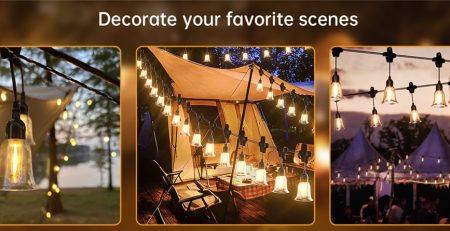
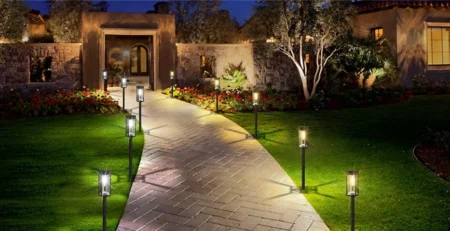
-1-3-450x231.webp)
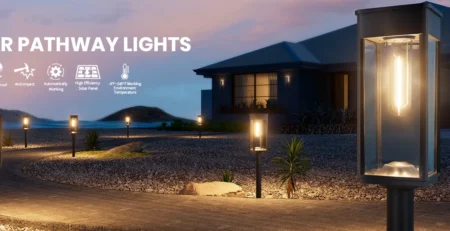
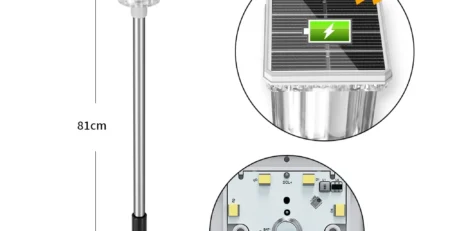
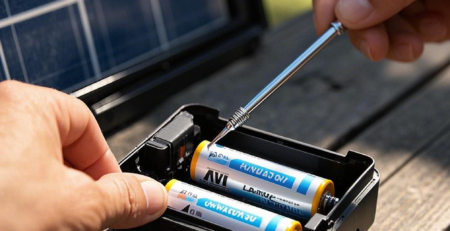

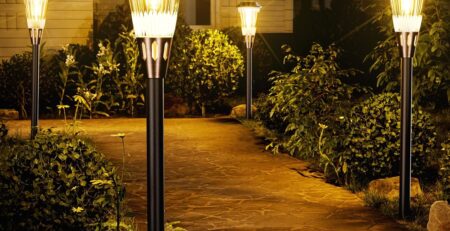
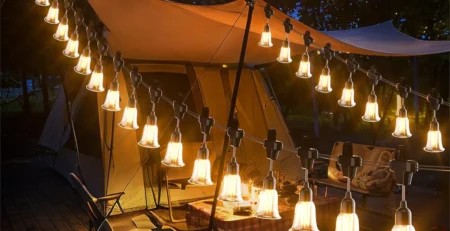

Leave a Reply